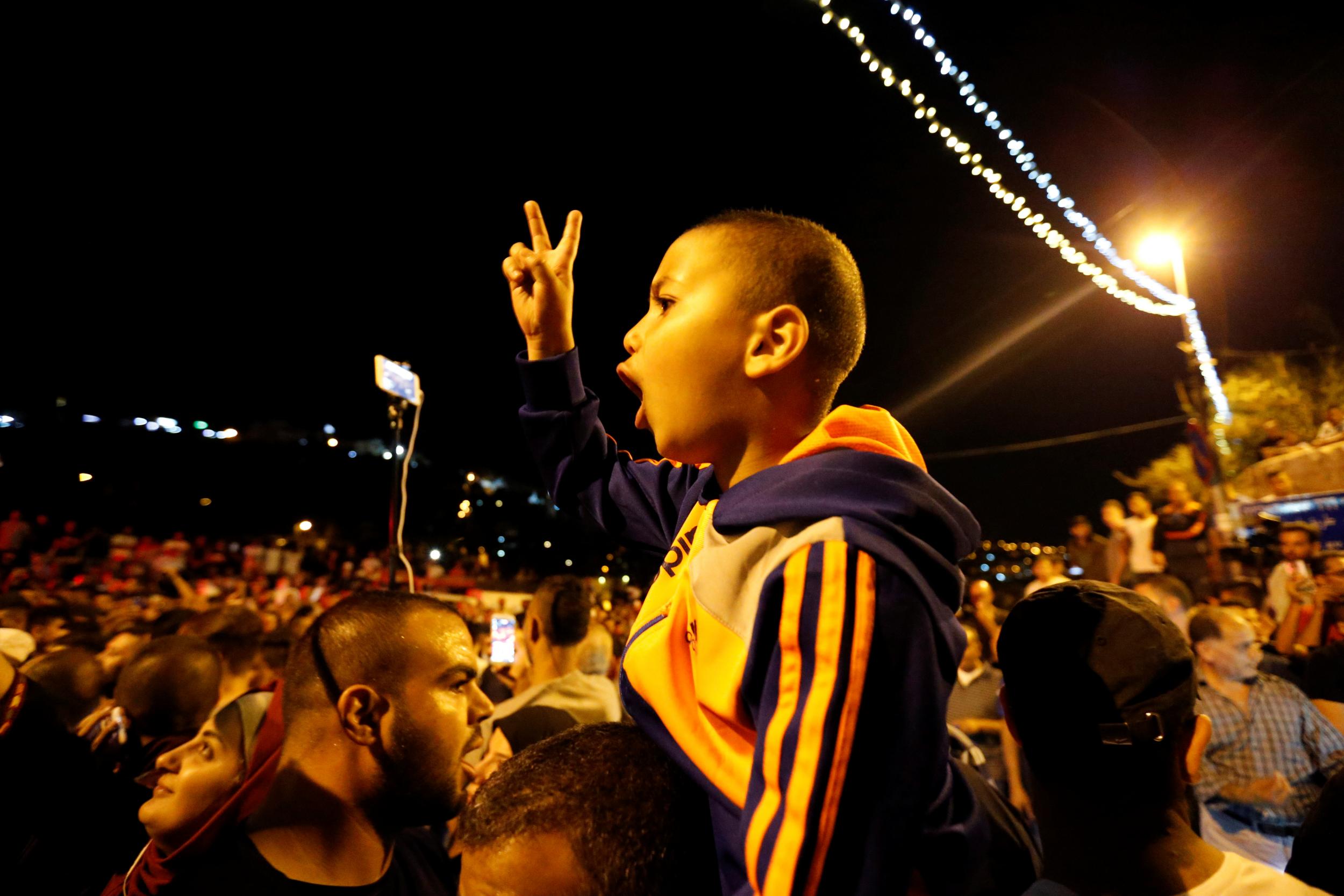All new security measures at Jerusalem holy site known as Temple Mount and Haram al-Sharif removed, Israel says
Site's religious authority tells faithful they can return to al-Aqsa mosque to pray, although Israeli police still brace for possible clashes during Friday prayers

Your support helps us to tell the story
From reproductive rights to climate change to Big Tech, The Independent is on the ground when the story is developing. Whether it's investigating the financials of Elon Musk's pro-Trump PAC or producing our latest documentary, 'The A Word', which shines a light on the American women fighting for reproductive rights, we know how important it is to parse out the facts from the messaging.
At such a critical moment in US history, we need reporters on the ground. Your donation allows us to keep sending journalists to speak to both sides of the story.
The Independent is trusted by Americans across the entire political spectrum. And unlike many other quality news outlets, we choose not to lock Americans out of our reporting and analysis with paywalls. We believe quality journalism should be available to everyone, paid for by those who can afford it.
Your support makes all the difference.Israeli police say they have removed all security measures recently put in place at the sacred compound in Jerusalem known as the Temple Mount in Judaism and Haram al-Sharif in Islam.
Security camera infrastructure including railings and an overhead bridge were dismantled in the early hours of Thursday, spokesperson Luba Samri said, following the removal of metal detectors the day before.
After completing their own inspection, the site's Muslim religious authority the Wafq announced that worshippers could end their current boycott of the site, urging the faithful to return to the compound's al-Aqsa mosque to pray.
"The Israeli occupation forces have been trying for decades to violate the al-Aqsa mosque compound. Now, you are living in the new era of victory. We totally appreciate the masses who have been gathering," a senior Waqf official told reporters.
Thousands of Palestinians took to Jerusalem's Old City overnight to celebrate the fact Israel had capitulated to their demands, dancing, setting off fireworks and waving Palestinian flags - a rare sight and rarer still feeling of Palestinian triumph in the contested city.
The installation of new security was met with uproar by Palestinians and Muslims across the world, who viewed as an Israeli attempt to exert more control over the politically sensitive site.
Worshippers had conducted morning prayers outside rather than inside al-Aqsa mosque in protest, and street clash violence killed at least four Palestinians.
In the occupied West Bank, three Israeli settlers were killed in their home as longstanding resentment over issues of Palestinian sovereignty and the Israeli occupation bubbled to the surface.
In an effort to deescalate the growing crisis - some of the worst bloodshed in Jerusalem in recent years - Israeli Prime Minister Benjamin Netanyahu's cabinet voted to dismantle the security.
The Waqf decided in a meeting on Thursday morning that their demand for the status quo to be restored had been met and the boycott of al-Aqsa should be called off.
Worshippers are expected to return to the site for the Asr afternoon prayers - although the city remains on edge, and it is not clear the Waqf's approval will be enough to diffuse the tensions.
International observers, including the UN’s Middle East envoy Nickolay Mladenov, had urged both sides to come to a resolution before Friday prayers, which usually draw tens of thousands worshippers, take place.
The tensions could spread “well beyond” Jerusalem if there was disruption on the Muslim holy day, he warned.
Israeli security forces are still braced for the possibility of violence, however, after previous Palestinian calls for a 'day of rage' on Friday.
Access to the compound has always been a hugely politically sensitive issue. While it is located in East Jerusalem, which was annexed by Israeli in 1967, the Muslim-administered site is operated by neighbouring Jordan in order to avoid conflict.
Palestinian Authority (PA) President Mahmoud Abbas froze contact with Israel over the issue, stating that it would remain in place until the new security restrictions were lifted. The PA has not yet commented on Thursday morning's developments.
In Gaza, controlled by militant organisation Hamas, senior leader Izzat Risheq said the Palestinians had achieved a "historic victory".
"Today, our people celebrate the removal of the gates (security measures), tomorrow they will celebrate the removal of the occupation itself," he said in a tweet.
Join our commenting forum
Join thought-provoking conversations, follow other Independent readers and see their replies
Comments